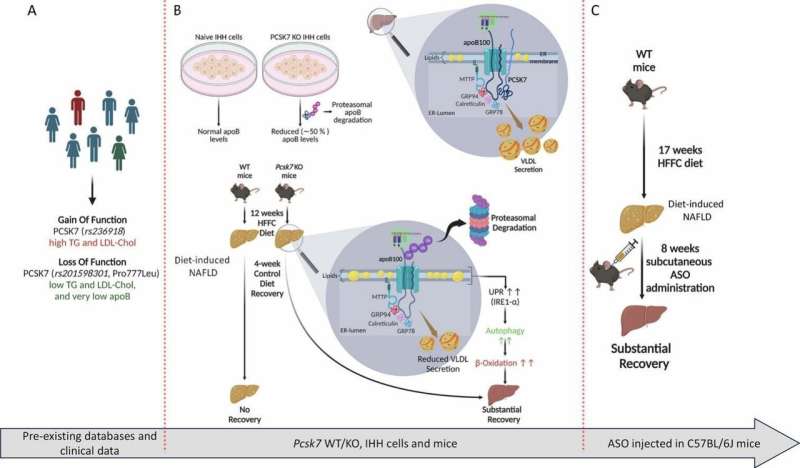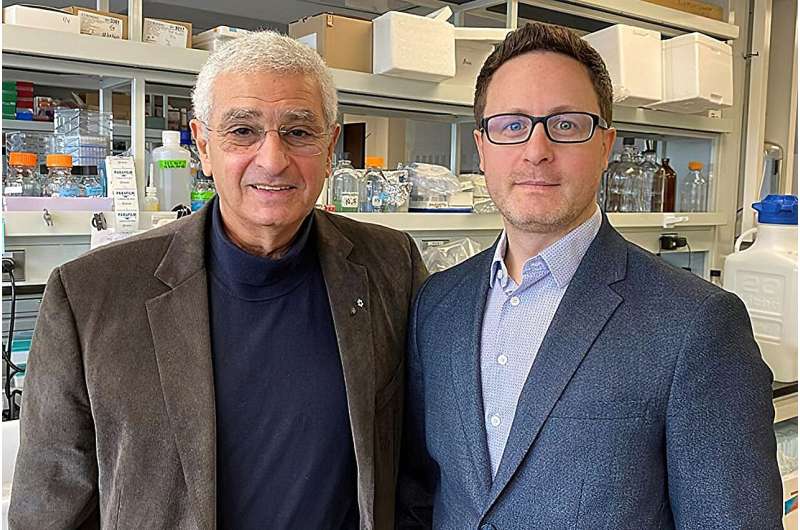This article has been reviewed according to Science X's editorial process and policies. Editors have highlighted the following attributes while ensuring the content's credibility:
fact-checked
peer-reviewed publication
trusted source
proofread
New hope for patients with non-alcoholic fatty liver disease

Non-alcoholic fatty liver disease (NAFLD) is a major health problem affecting approximately 30% of people in Western countries and which has been in sharp increase over the last three decades.
Despite several attempts and clinical trials, there are currently no treatments approved for this serious and potentially life-threatening disease. In 1 in 5 cases, steatosis leads to cirrhosis, which may require a liver transplant.
In the past, some human genetics studies have linked PCSK7 variants to lipid metabolism.
But now, in groundbreaking research, scientists led by biochemist Nabil G. Seidah of the Montreal Clinical Research Institute (IRCM) have found that the PCSK7 gene produces a chaperone protein PCSK7 that regulates apoB, the main protein of LDL cholesterol particles.
A professor at Université de Montréal's Faculty of Medicine, Seidah also found that removing PCSK7 leads to a 50% degradation of apoB and prevents hepatic steatosis. Moreover, it leads to effective recovery of the liver from diet-induced NAFLD (typically manifested as decreased lipids, inflammation, hepatocyte ballooning and fibrosis in the liver).
The research is published in the journal Metabolism.

'Silencing' the PCSK7 protein
For this research, Seidah's team joined forces with that of his IRCM colleague Martin Sauvageau to develop an RNA-based therapeutic approach to silence PCSK7 using antisense oligonucleotides (ASO) that have galactose (GalNAc) moieties attached to it, and thereby bring the ASO to liver hepatocytes and induce the degradation of PCSK7 mRNA.
Injecting this ASO in mice reversed the diet-induced NAFLD, indicating that this may serve as a promising new target for NAFLD. The researchers already have ASO to target the human PCSK7 gene and are now testing to determine if their effect is recapitulated in human cells and soon in humanized PCSK7 mice, which would then open the door to clinical trials.
The development of this ASO-based therapeutic approach is part of the IRCM's new Sidney-Altman RNA Therapeutic Hub, which aims to develop RNA therapies via design, synthesis, screening and pre-clinical trials to bring the discoveries made in the laboratories of hospitals and research centers closer to use in a clinical setting.
More information: Vatsal Sachan et al, PCSK7: A novel regulator of apolipoprotein B and a potential target against non-alcoholic fatty liver disease, Metabolism (2023). DOI: 10.1016/j.metabol.2023.155736





















